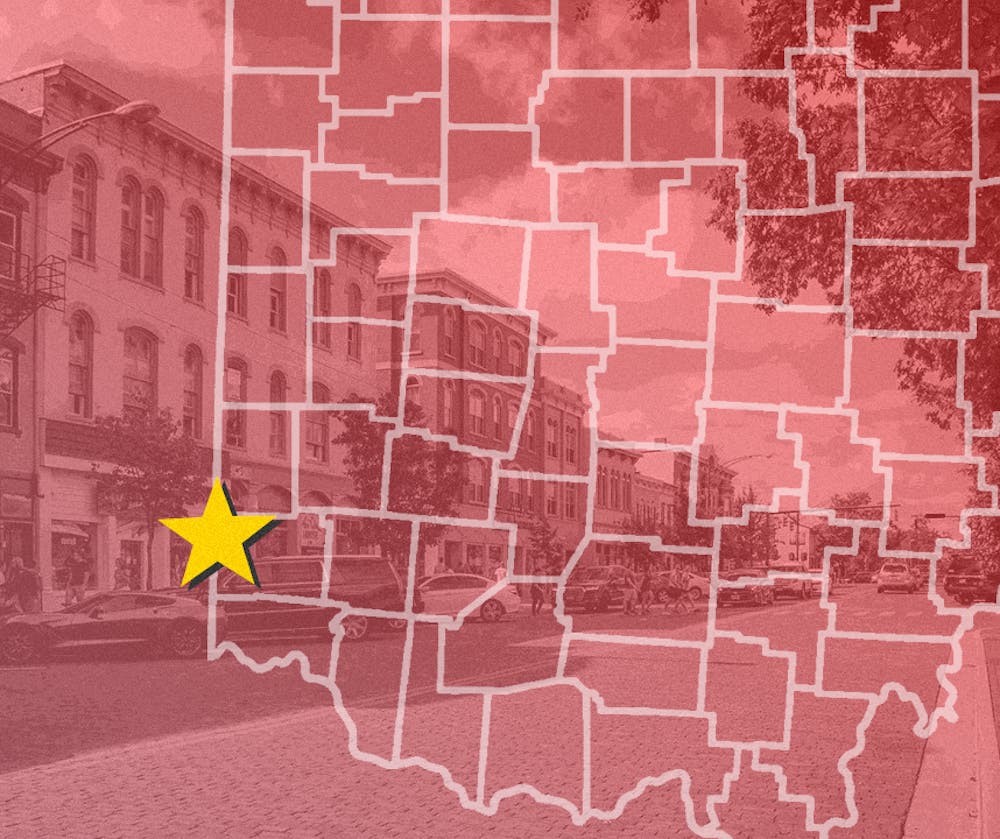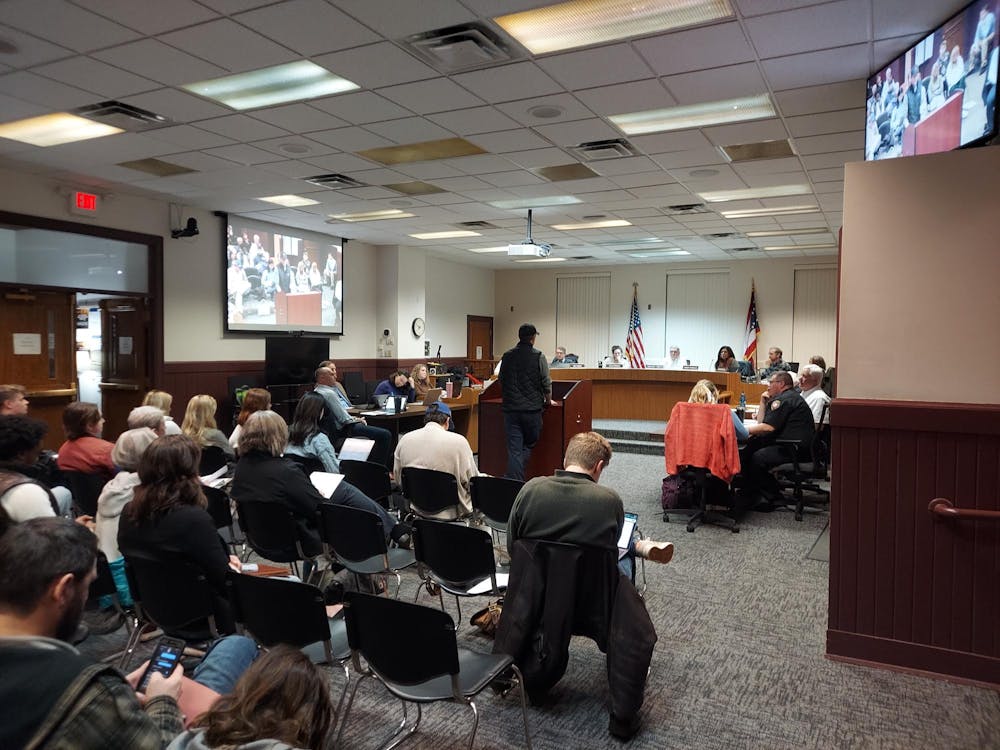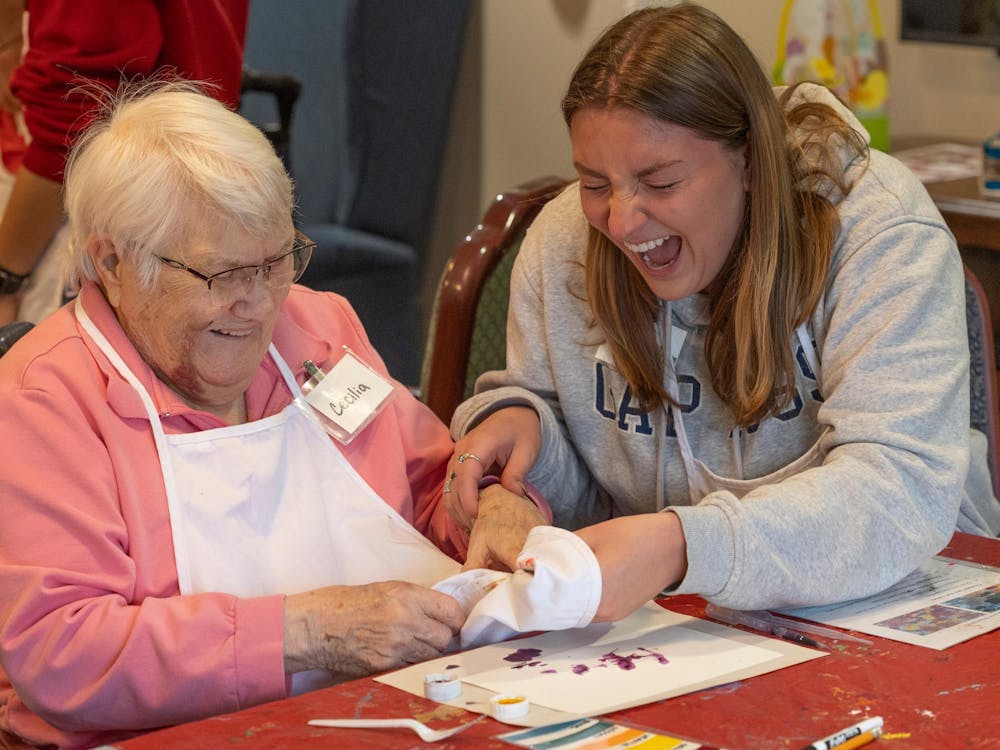Oxford City Council heard recommendations on Black Lives Matter (BLM) Oxford’s police reform proposals during its Oct. 6 meeting.
Assistant City Manager Jessica Greene presented a potential response to three proposals made by BLM Oxford in August.
The first proposal was to require comprehensive reporting on all stops made by police. Greene explained that, currently, the city doesn’t have the tools to collect all of the data requested by BLM Oxford. She said Oxford Police Department (OPD) is working to create a committee to find ways to collect the additional data requested.
Greene said the goal would be to begin collecting the data by January 2021.
The second BLM Oxford proposal was to make it easier for residents to file a complaint against an officer if needed. BLM Oxford suggested OPD give out business cards during each stop with the name and badge number of the officer.
Greene said, in response, the city has created two online feedback forms. She added OPD will be working on including QR code links to the forms on their business cards.
The goal for implementation of this proposal is also January 2021.
The third proposal from BLM Oxford was to create a task force to research alternatives to traditional policing. Greene proposed a timeline that would call for the creation of the task force and that would investigate existing social service agencies.
Working with these agencies, council would receive recommendations and a budget for changes to the city’s policing. Greene set the goal for implementation of the proposal by January 2022.
“We know we’re not perfect,” Councilor Jason Bracken said. “Even though this is not a negative reflection on our police force, it’s just there are things we can do better, and there are things we can lead the way on.”
OPD Chief John Jones said he works with mental health experts and has partnered with social workers over the years.
“I don’t look at this conversation as police violence and preventing police violence,” Jones said. “Because our officers know when to use appropriate force, and a social worker with them, I don’t think, is going to prevent police violence.”
Enjoy what you're reading?
Signup for our newsletter
He said he’s open to more research being done and doesn’t believe that the task force would be trying to replace police officers entirely.
“I think there’s a definite need for policing,” Jones said. “But we’re always trying to connect with social services.”
Jones said his police officers do a great job responding to mental health situations, but that they always want to do better.
“I’m not opposed to the task force, as long as it’s not politically motivated,” Jones said, “as long as it’s not pushing one agenda, as long its representative of the community and also has experts on it who know about police response to mental health situations.”
Mayor Mike Smith said he is accepting of a task force, but that he’d like to see the other two proposals implemented before moving on to the task force.
“This is not going to move as fast as people would like it,” Mayor Mike Smith said. “We are incredibly busy as a city.”
Later in the meeting, council passed resolutions to spend Coronavirus Aid, Relief, and Economic Security (CARES) Act funding given to the city by the federal government.
Council passed resolutions to spend $25,000 on People United for Self Help (PUSH), $41,600 on Oxford Seniors, and about $7,800 on Age Friendly Oxford and to give $10,000 to the Oxford Chamber of Commerce to reimburse businesses for COVID-19 expenses.
In addition, council passed $35,000 to Enjoy Oxford and just over $938,000 for public health upgrades, economic sustainability programs and educational supports.
Council voted to name or rename a street after Mike Davis, treasurer and CFO of the Talawanda School District, who died from COVID-19 in April.
City Manager Doug Elliott reported the Oxford zip code has reported 165 COVID-19 cases — separate from Miami’s cases — as of Sept. 28 which makes up 2.5%of cases in Butler County.
As of Oct. 3, Miami’s COVID-19 dashboard showed 1,614 cases. Butler County has reported a total, including Miami’s cases, of 6,680 cases. This means that Miami’s cases account for about 24% of the county’s cases.
Elliott said that as of Oct. 6, there have been no known student hospitalizations due to COVID-19. He encouraged community members to say something if they see others without masks on.
The next council meeting will be streamed on YouTube at 7:30 p.m. Tuesday, Oct. 20.




